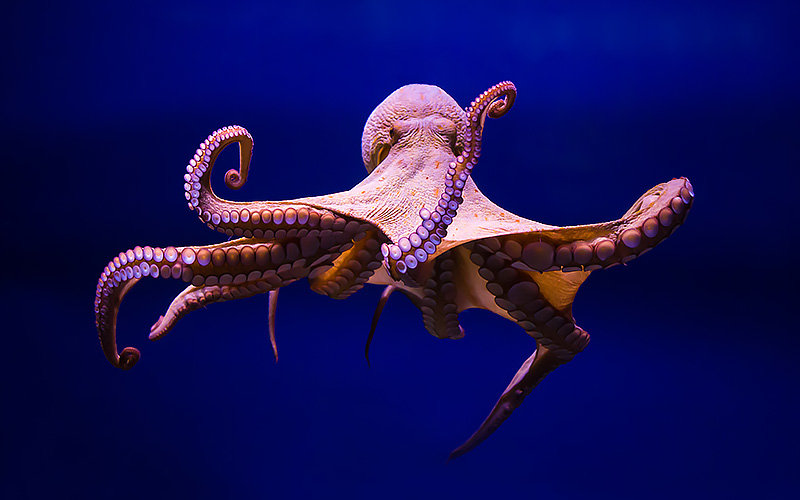
Growing up on a dairy farm in Wisconsin, Jessie Peissig was drawn to the study of animals at an early age. Today, the Cal State Fullerton psychology professor specializes in researching and teaching animal behavior.
Students in such courses as “Comparative Animal Behavior” and “Evolution and Cognition” have the opportunity to participate in Peissig’s research, including an upcoming study of octopuses to better understand cognition in invertebrates.
Can you share some of the recent advances in understanding how animals think and perceive the world?
There are so many fantastic discoveries in nonhumans. Recent studies in dogs show that a human yawning can trigger a dog to yawn, showing that social behavioral triggers can even go across species. Another study published just last month showed that pigeons can actually switch tasks faster than humans can. We fancy ourselves smarter than pigeons, yet in some tasks they clearly outperform us.
Can you describe your new line of research examining cognition in invertebrates?
We’re interested in systematically testing learning and memory in the octopus, so we can make direct comparisons to vertebrates. I plan to set up a learning lab in spring 2018, with data collection beginning in fall 2018. Similarities will tell us about constraints within biological systems, and differences could lead us to discover alternative processing strategies. These alternative processing strategies could be important for other fields of research, such as artificial intelligence.
How are students involved in your research?
My research lab currently consists of four undergraduates and three graduate students. More students will join my research team once the octopus research starts, and we plan to allow students taking “Comparative Animal Behavior” and “Learning and Memory” classes to get involved as well. This kind of animal research experience is a great way to prepare for graduate programs in neuroscience, cognitive psychology, comparative cognition, biology and zoology.
Why is this type of research valuable to the general public?
We make lots of important discoveries that directly affect humans by learning about other species first. Right now there is ongoing research on humans looking at genes for monogamy that were originally discovered in prairie voles. There is also research on human language disorders that was initially advanced by studies on how birds learn bird song. It’s impossible to know where the next big discovery might come from. Perhaps with our octopuses?
Upcoming event: Peissig will present an Oct. 11 talk on recent advances in the study of how animals think and perceive the world. The talk is part of the Fullerton Public Library’s monthlong celebration of “Animal Tales.”